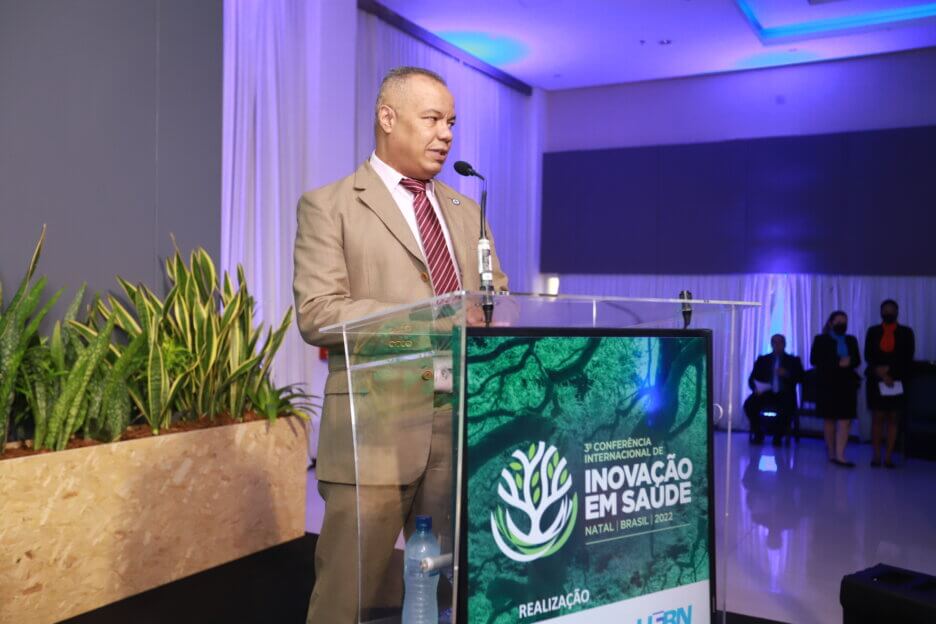By Jordana Vieira (Ascom/LAIS)
On World Health Day, it is valid to reflect and discuss the challenges of this sector in Brazil. And around this, the discussions of the fourth and last day of the 3rd International Health Innovation Conference (3rd CIIS) succeeded each other. The morning began with the lecture “Audit 4.0 in SUS: where are we and where are we going?”, given by Cláudio Azevedo, director of the National Audit Department of the Single Health System of the Ministry of Health (DENASUS/MS).
Cláudio started his speech highlighting that the Technological Innovation in Health Laboratory of the Federal University of Rio Grande do Norte (LAIS/UFRN) is one of the partners contributing to the improvement process of the new DENASUS configuration. The focus of this new audit is that it be sustainable and 100% digital, using technologies that have emerged with Industry 4.0 in order to provide quick answers to the population.
The justification for this goal is the integral presence of 4.0 technologies in all sectors of society today, directly affecting our daily lives. These technologies have been advancing at a very fast pace. “Covid-19 came to accelerate this evolution even more, because it was a difficult moment in which health needed to give quick and effective answers to the citizen through these technologies,” he said. The director also added that several LAIS projects use 4.0 technologies.
Cláudio explained that there are other partners involved in this audit improvement process, and each one of them was responsible for some demand. LAIS is responsible for regulation, orthoses, prostheses, and special materials (OPME), and also, for vaccination.
“SUS doesn’t stop, it is a continuous information movement”, said Cláudio, about the Unified Health System to introduce the National Health Data Network (RNDS) in the lecture. The RNDS is a national platform for health data integration.
The lecturer ended his speech by pointing out that the SUS has the potential to adapt to the new technologies proposed, due to the multiplicity of the Ministry of Health’s bases and systems.
Industry 4.0
Industry 4.0, or Fourth Industrial Revolution, is a concept that represents the automation of industrial processes and the integration of different technologies such as artificial intelligence, robotics, the Internet of Things, and computing.
This process aims to optimize and increase the production of industrial activities. With Industry 4.0 technologies it is also possible to develop products on a large scale, increasing productivity.





